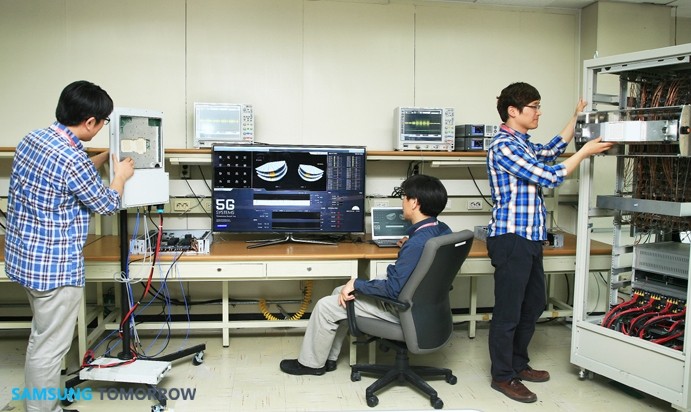Jesse
Posts: 358 +42

Samsung Electronics announced today that it has developed the world’s first 5G mobile wireless technology. The technology operates in the millimeter-wave Ka bands for cellular communication, and provides data transmission several hundred times faster than existing 4G networks, said Samsung.
5G, shorthand for “fifth generation,” is the next generation of the current 4G Long Term Evolution (LTE) technology, and is expected to be available by 2020. The practical implementation of 5G has hit roadblocks in the past because of the broad band of frequencies it requires to operate. The millimeter-wave bands do not travel well over extended distances because of what Samsung refers to as “unfavorable propagation characteristics.”
Samsung has combated this issue with its new adaptive array transceiver technology, which uses 64 antenna elements to overcome radio propagation loss. The transceiver broadcasts at 28GHz, much higher than the 2-8GHz range used by 4G, and is able to achieve speeds up to 1.056 Gbps to a distance of two kilometers.
The company hopes that this new technology will spur international innovation, research, and development. Once commercialized, Samsung says 5G technology will allow users to transmit massive data files “practically without limitation.”
There is a lot of competition in the race for viable 5G technology. China established a government program called “IMT-2020 (5G) Promotion Group” in February 2012, and the European Commission plans to invest 50 million Euros in 2013 into 5G services research and development. Additionally, NTT DoCoMo successfully conducted a 10 Gbps wireless test in February of this year, proving that mobile wireless speeds faster than LTE are indeed possible.
https://www.techspot.com/news/52573-samsung-announces-first-5g-mobile-wireless-technology.html